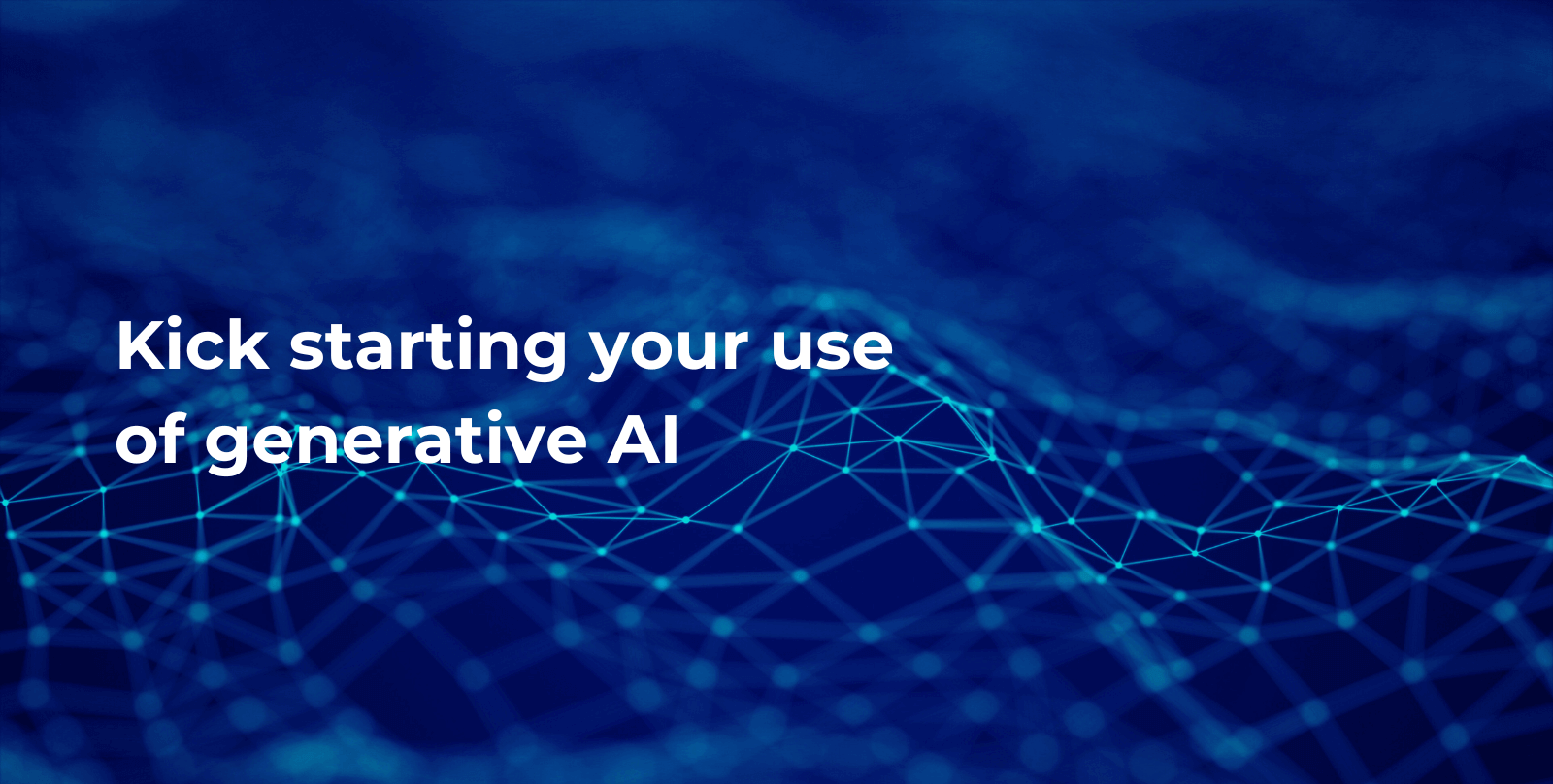The launch of ChatGPT in November 2022 propelled AI back into the spotlight. Widely considered as the best chatbot to date, it signifies a step change in the evolution of generative AI and has led many organisations to wonder how best to harness the ever-growing potential of AI.
The applications of generative AI for B2B marketers are numerous and wide ranging, with many CMOs initially prioritising solutions that improve personalisation and the customer journey. Here are the top five use cases we think you should be considering right now:
Content Generation
Generative AI can be used to create high-quality, engaging content for B2B marketing purposes such as blog posts, articles, social media captions, and product descriptions. This technology can also provide personalised content recommendations based on user preferences and behaviour. While this type of AI can undoubtedly save time and effort for content creators, all content needs to be reviewed and carefully edited, bringing in your own industry knowledge and experience. Any content you put out into the public domain should always reflects your brands’ unique tone of voice to ensure it remains authentic and fact checked for credibility of sources and references.
Lead generation
Generative AI such as LeadIQ and Kartra can help identify and generate high-quality leads for B2B marketing campaigns. By analysing vast amounts of data, including user behaviour, demographics, and firmographics, AI models can predict potential customers and generate targeted lead lists. This enables marketers to optimise their lead generation efforts and focus on the most promising prospects. Always remember as marketers, you’re only as good as your data, and never more so than in the age of AI. Prioritising regular data hygiene is a must, along with regularly updating your ideal customer profiles and personas.
Personalised email campaigns
Personalisation is crucial in B2B marketing, and generative AI can play a significant role here. By analysing customer data, AI models can create a personalised experience including ads, social outreach and tailored email content, including subject lines, body text, and recommendations. This level of personalisation increases the chances of engagement and conversion, leading to more effective email marketing campaigns. The caveat here is that personalisation and privacy is a delicate balancing act and marketers must ensure they avoid becoming invasive and use reliable data sources.
Market research and analysis
Generative AI can analyse vast amounts of market data, including competitor analysis, industry trends, and customer behaviour, to provide valuable insights for B2B marketing strategies. By processing and interpreting this data, AI models can generate reports, recommendations, and predictive analytics that help businesses make informed marketing decisions. Again, the quality of the data here is key and must be up-to-date to be most effective.
Chatbots and virtual assistants
AI-powered chatbots and virtual assistants can enhance customer interactions and support in B2B marketing. Generative AI allows these conversational agents to understand and respond to customer queries, provide relevant information about products or services, and even assist with lead nurturing and sales. This technology enables businesses to offer round-the-clock support, improve customer experience, and streamline the sales process.
These are just a few examples of how generative AI can be leveraged in B2B marketing. The next things to consider are, how do I decide what type of AI to invest in first and how do I test different AI solutions? Privacy and security related issues are also a key consideration. Talk to Bright about setting your teams up to be able to autonomously test AI solutions and establishing the guardrails for successful and safe adoption of AI to drive marketing effectiveness and increase engagement with your audiences.

